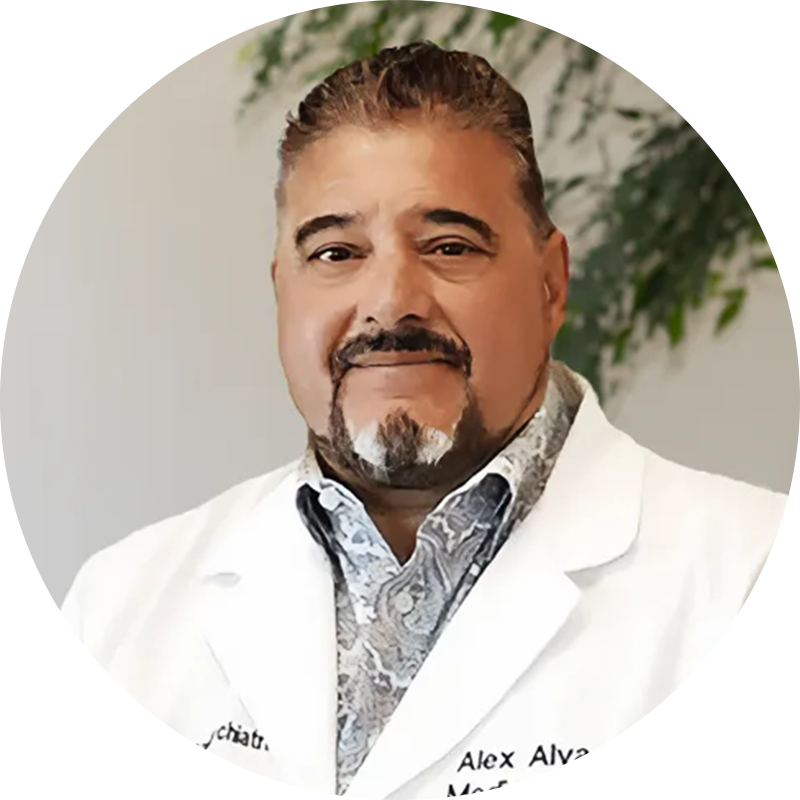Caffeine Withdrawal Symptoms – Timeline and Management Tips

Authored By:
Raleigh Souther

Edited By:
Chase Mcquown

Medically Reviewed By:
Dr. Alejandro Alva
- Last Updated:

If you’re the kind of person who can’t even think about starting your morning without that first coffee, or maybe you grab an energy drink just to make it through the day, you’re definitely not alone. Caffeine is everywhere. It’s easily one of the most popular things people lean on to stay awake and alert.
But what actually happens when you hit pause on caffeine? Maybe your doctor suggested it. Or maybe you’re just wondering what life would be like without having to depend on it so much. Whatever your reason, just a heads-up, quitting caffeine can get pretty uncomfortable sometimes.
In this guide, we’re going to break down exactly what goes on when you ditch caffeine. And if you’re already feeling a little rough and wondering if what you’re experiencing is totally normal? Don’t stress, we’ll walk through the timeline step-by-step. Plus, you’ll get some tips to help you handle the ups and downs a little easier.
Common Caffeine Withdrawal Symptoms
Deciding to cut back on caffeine? It’s a strong move toward taking back control. But you might find yourself dealing with a few unexpected symptoms, physically and emotionally. Let’s break it down a bit more.
From Headaches to Fatigue
First up, the headaches. They’re infamous when it comes to caffeine withdrawal. Some say it creeps in slowly, wrapping your head in this dull pressure, while others describe it as sharp and throbbing.
It can linger for hours or days. It mostly depends on how much caffeine your body is used to having. Plus, even if you’ve slept like a baby the night before, you might still feel that heavy, dragging tiredness. Other symptoms that might pop up include:
- Low motivation
- Slower reaction times
- Constant yawning
Mood Changes, Dizziness, and Anxiety
Cutting off caffeine can do a number on your mood too. You might find yourself snapping at things that usually wouldn’t be a problem. This is common, so don’t beat yourself up over it. Some other emotional and mental side effects you might notice are:
- Getting frustrated over tiny things
- Feeling restless or a bit extra anxious
- Mood dipping down, mild depressive feelings
- Struggling to stay focused
- Feeling dizzy or a bit lightheaded
The Caffeine Withdrawal Timeline: What to Expect

The good news? Caffeine withdrawal doesn’t drag on forever. It’s got a predictable pattern if you know what to expect. Having a rough idea of the timeline makes the whole experience a little easier to survive.
Here’s how it usually plays out:
| Timeline | What to expect |
| First 12 – 24 hours | Lower energy, slight headache, feeling a bit off, brain fog, feeling like you didn’t sleep great |
| 2 – 3 days (symptoms are at their peak) | Headaches get worse, crushing fatigue, extra cranky and sluggishness, hard time focusing, possible mood swings, anxiety, or a dip in mood. |
| 4 – 6 days (things begin to ease up) | Headaches begin to ease, energy slowly comes back, lingering fogginess, still not super motivated. |
| 7 days and beyond | Energy feels steadier, sleep gets better, less anxiety, and mood levels out. |
Why Caffeine Withdrawal Is Not Equal For Everyone
People’s symptoms can vary when quitting caffeine. Some people barely notice the difference, while others feel like they’ve been hit by a truck. A few reasons why it varies so much:
- How much caffeine you usually have. If you’re used to a lot of coffee or energy drinks daily, your body’s gotten used to it. The more you take, the tougher the withdrawal.
- How long you’ve been using caffeine. Someone who’s been hooked for a decade is likely to have a rougher time than someone who picked up the habit a few months ago.
- Your overall lifestyle. If you’ve got a lot on your plate and you’re super active (or super stressed), your body might depend more on caffeine to keep going. Taking it away can hit harder.
- Existing medical conditions. Anxiety, depression, sleep disorders, these can all make caffeine withdrawal feel worse. Not fun, but important to know.
Natural Remedies to Ease Caffeine Withdrawal
You don’t have to go through caffeine withdrawal all on your own. There are plenty of simple, natural ways to ease the process.
Here’s what might help:
- Stay Hydrated. Quitting caffeine leaves your body craving balance. Water’s your best friend here. It can help chase off headaches, tiredness, and mental fog.
- Get More Sleep. Give yourself permission to crash early. Nap if you need to. Withdrawal is basically your body trying to heal itself.
- Eat Healthy Meals. Small, steady meals filled with healthy nutrients like grains, lean proteins, fruits, and veggies. This can help stabilize your energy and mood.
- Move Your Body Gently. You don’t have to run a marathon. Simple exercises like walks, stretching, and light yoga can boost your mood without wearing you out.
- Find an Alternative Drink. Part of caffeine’s power is the ritual. Instead of quitting cold turkey, replace that coffee break with herbal tea, sparkling water, or even smoothies.
Managing Caffeine Withdrawal Headaches and Nausea
Headaches and nausea are the worst parts of caffeine withdrawal. But the bright side is there are simple little things you can do to make them easier to handle. Here’s what usually helps:
For Caffeine Withdrawal Headaches:
- Drink More Water. Sounds basic, but dehydration makes everything worse.
- Cold or Warm Compress. Try a cold pack on your forehead or a warm one at the back of your neck. You’ll figure out which one feels better for you.
- Rest Your Eyes. Cut down screen time a bit if you can. Less strain = fewer headaches.
- Breathe Deeply. Inhale slowly, exhale slower. Repeat often. This should help calm you.
- Pain Relievers. Over-the-counter drugs like ibuprofen or acetaminophen can help if it gets really bad.

For Caffeine Withdrawal Nausea:
- Eat Tiny Meals More Often. Big meals can make nausea worse. Little snacks are way easier on your stomach.
- Ginger Is Your Friend. Ginger tea, ginger candies, whatever works. It’s a classic remedy for a reason.
- Sit Upright While Eating. Helps keep things down and your stomach happier.
- Deep Breathing. Same as for headaches, slow, deep breaths can settle your stomach a bit.
Can You Avoid Withdrawal Altogether?
Quitting all at once tends to give your body intense withdrawal symptoms. But if you ease off it slowly, it becomes a lot easier. Your body gets a chance to adjust without freaking out.
Tips for Tapering Off Caffeine Gradually
If you want to make the quitting smoother, here’s how you can gently cut back:
- Figure out how much caffeine you’re actually having. Track it for a couple of days, you might be surprised.
- Cut down by about 10–25% every few days. No rush. Small steps are always better.
- Swap it out smartly. If you usually drink three coffees, maybe swap the third one for herbal tea or even decaf.
- Give yourself time. Your body’s learning a whole new normal. It’s allowed to take a while.
When to Seek Help for Caffeine Dependence
There’s no shame in admitting caffeine’s got more of a grip on you than you thought. If you’re struggling more than you expected, it might be time to talk to someone about it. You might want to reach out for help if:
- You’ve tried to quit or cut down more than once, and it just doesn’t stick.
- Your withdrawal symptoms are so bad they mess with your work, your sleep, or just living your life.
- You feel nervous, shaky, or guilty about how much caffeine you’re using.
- You suspect caffeine is covering up something bigger, like anxiety or depression.
Talking to a professional can make a huge difference. No need to tough it out alone.
Struggling With Withdrawal Symptoms? Visalia Recovery Center Is Here to Help
Caffeine withdrawal is rough. It can feel overwhelming and even a little lonely sometimes. But here’s the important thing, deciding to cut back on caffeine is a powerful choice. You’re giving your body a real gift, even if it doesn’t feel like it right this second.
Give yourself credit. Give yourself some time too. Your body is healing, rewiring itself to thrive without the constant jolt of caffeine.
And if you find you need a little extra backup? Visalia Recovery Center is here every step of the way. We’re here to offer support, guidance, and a nudge when you need it most.
Contact Visalia Recovery Center today, no judgment, no pressure, just a helping hand while you find your balance again, one step at a time.
FAQs
What are the common symptoms of caffeine withdrawal?
You’ll probably notice headaches first. But there’s usually more: feeling exhausted, mood swings, caffeine withdrawal dizziness, anxiety, maybe even some mild depression or nausea.
How long does caffeine withdrawal last?
Most people deal with the worst of it somewhere between two and seven days. The roughest symptoms usually hit in the first 48 hours, then start to ease off after that.
What helps with caffeine withdrawal headaches?
Water, healthy meals, decent sleep, and cold compresses can make a world of difference. Painkillers are an option too if you need them.
Can caffeine withdrawal cause anxiety?
Yes, it definitely can. In fact, for some people, the anxiety hits pretty hard at first. But, it gets better.
How can I quit caffeine without withdrawal symptoms?
Gradual tapering. Cut back slowly. If you’re drinking three coffees a day, drop to two and a half for a few days, then two, and so on. Herbal tea or other non-caffeinated drinks can really help you bridge the gap.


